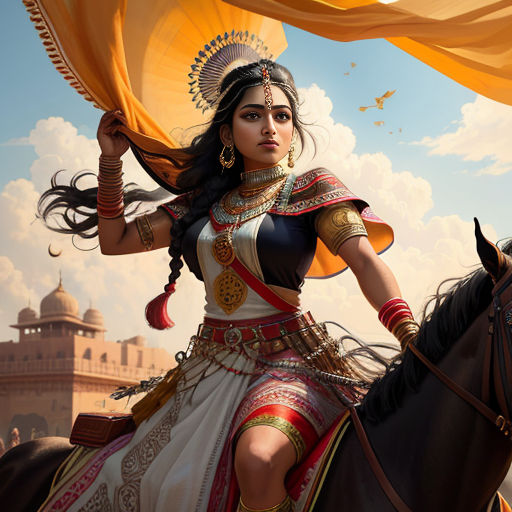
Warrior Queen: The Inspiring Life of Rani Lakshmi Bai
By christian.tideman

16 Oct, 2024

Born into a wealthy family in Banaras, Rani Lakshmi Bai grew up learning about her heritage and the richness of Indian culture. She was a curious child, always eager for knowledge and seeking to better understand the world around her.
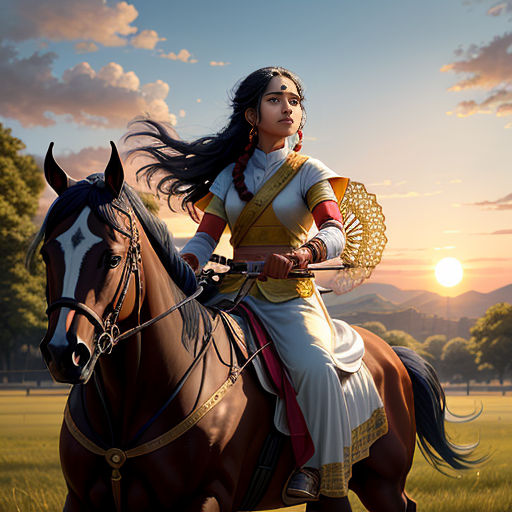
At a tender age, she was taught horse riding, sword fighting, and archery. These were unusual skills for a girl to possess at that time, but she embraced them without hesitation.
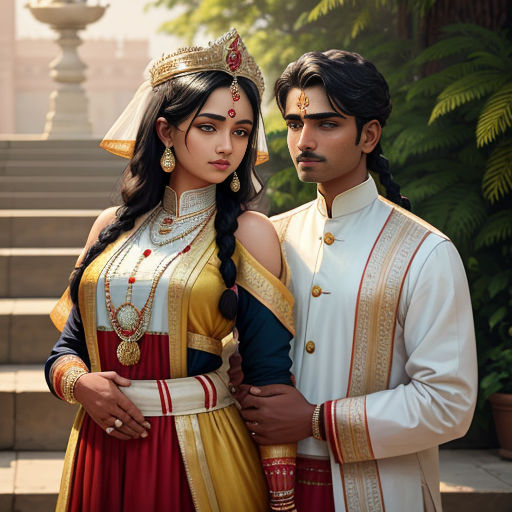
Soon after, she was married off to Gangadhar Rao, the Maharaja of Jhansi. And so, a destined queen, she ventured into realms of leadership, courage, and resilience.

When her husband passed, leaving her with an adopted son, Damodar Rao, the British tried to take Jhansi under the doctrine of lapse. This was a turning point in her life.
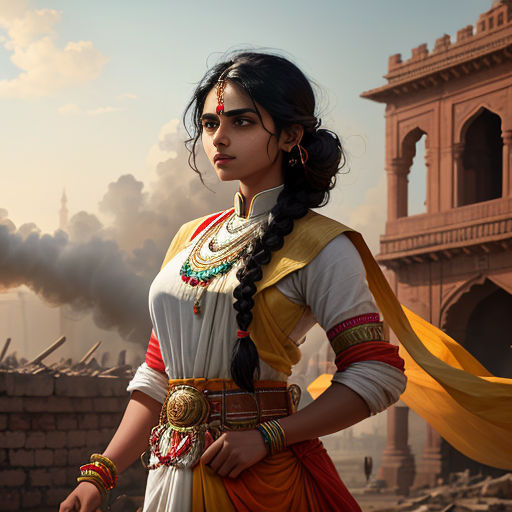
Refusing to bow down, she famously proclaimed, "I shall not surrender my Jhansi!". This marked the beginning of her defiance against the British rule.
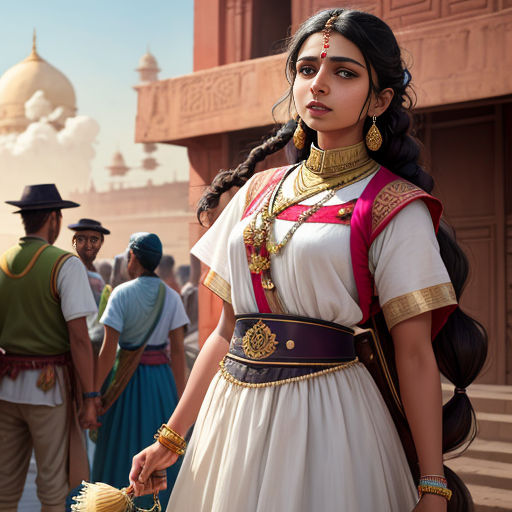
Her strength and valour inspired her people. They rallied around her, ready to follow her into the battle against the oppressors.
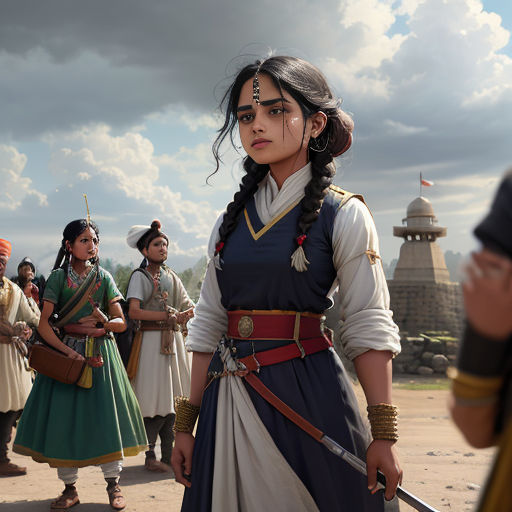
Under her leadership, Jhansi became a fortress against the British. She transformed the peaceful town into a fighting unit, preparing for the inevitable battle.
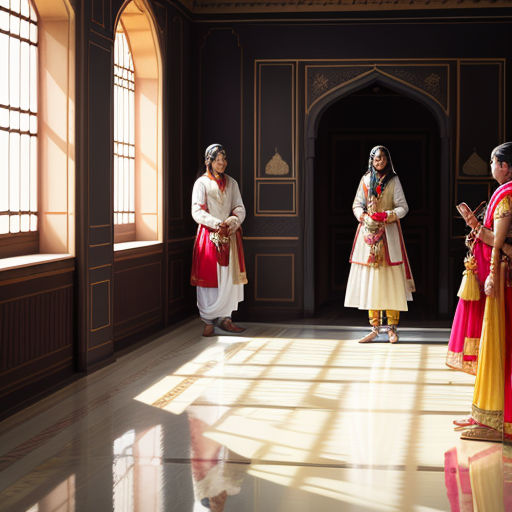
Her determination was not just limited to the battlefield. She also managed the state's affairs, ensuring the welfare of her people despite the looming threat.
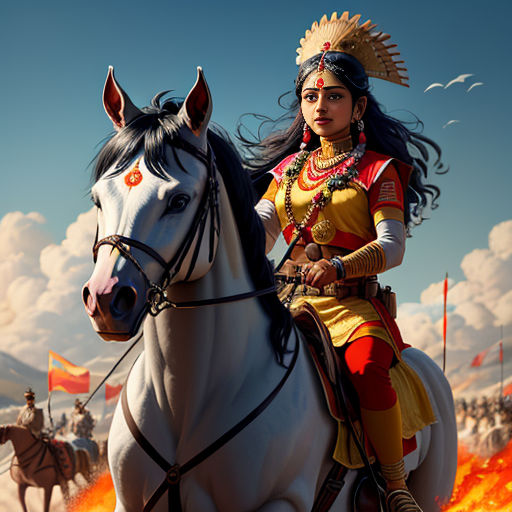
When the siege of Jhansi began, Rani Lakshmi Bai bravely led her troops. The fight was intense, but their unyielding spirit was a tough match for the British forces.

Despite being outnumbered, they held their ground for two weeks, fighting with unwavering courage and determination under her leadership.

She herself was a warrior on the battlefield, riding into the thick of the fight, fearlessly rallying her troops and inspiring them to not lose hope.

The British, however, managed to breach the fort. But Lakshmi Bai, with her son tied to her back, escaped and regrouped with other rebel forces.
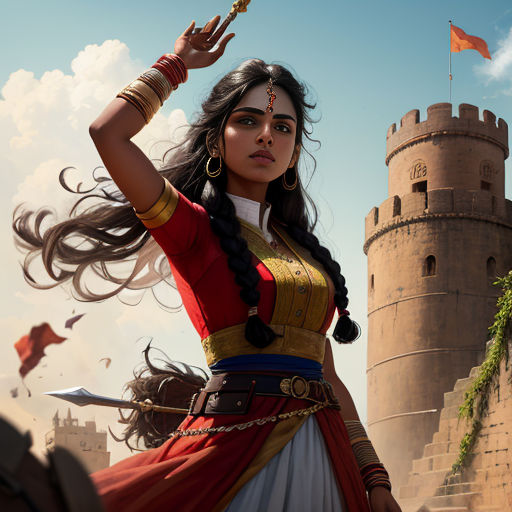
Her escape from the besieged Jhansi became legendary. Stories of her bravery were passed down, inspiring patriotic sentiments among the common folk.
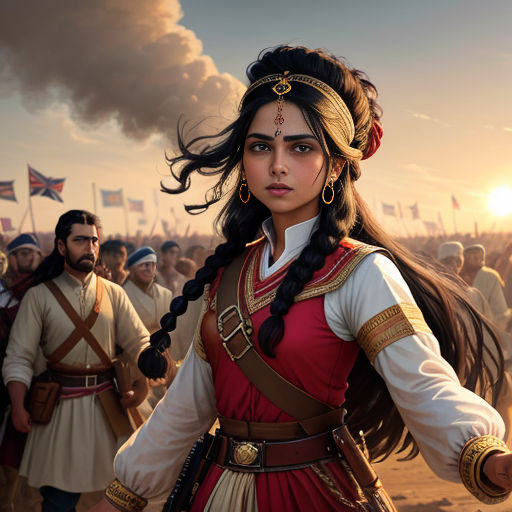
She joined forces with other rebel leaders. Together, they formed a formidable front against the British, committed to drive them out of their motherland.

After successfully defending Gwalior, the queen of Jhansi, fought her last battle. She led her forces against the British, but fate had other plans.

During the battle, she was severely injured. Yet, with courage in her heart, she continued to fight, refusing to let go until her last breath.

Rani Lakshmi Bai's undaunted spirit in the face of adversity, her passion for freedom, and the love for her people made her an iconic figure in India's struggle for independence.
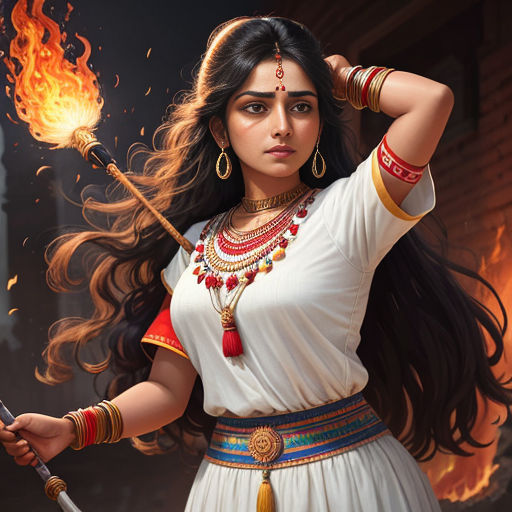
Her one life inspired millions, her death ignited a spark that eventually led to the downfall of the British rule. She had indeed left an indomitable mark on history.

The British forces had won the battle but not the war. The legend of Rani Lakshmi Bai lived on, inspiring countless others to rise against the unjust British rule.
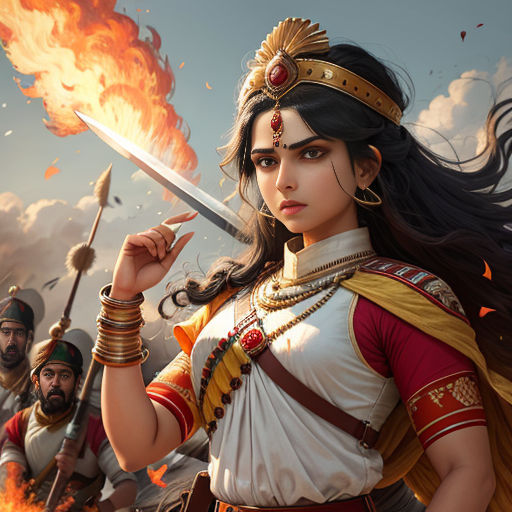
Even the British acknowledged her valour. General Hugh Rose, who fought against her, called her "the most dangerous of all Indian leaders."
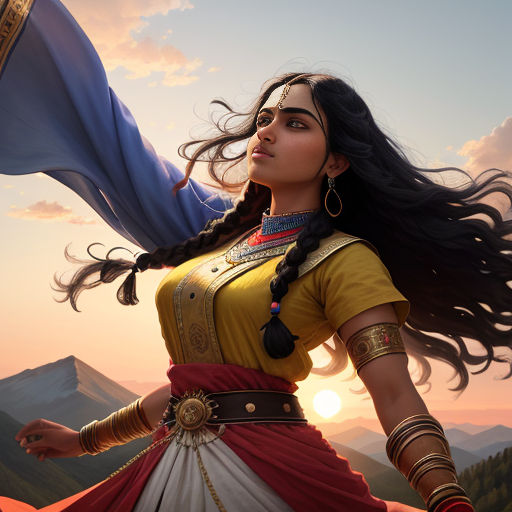
Today, she stands as a symbol of bravery and resistance, empowering millions of people worldwide. Her life is an example of courage, resilience, and undying spirit.
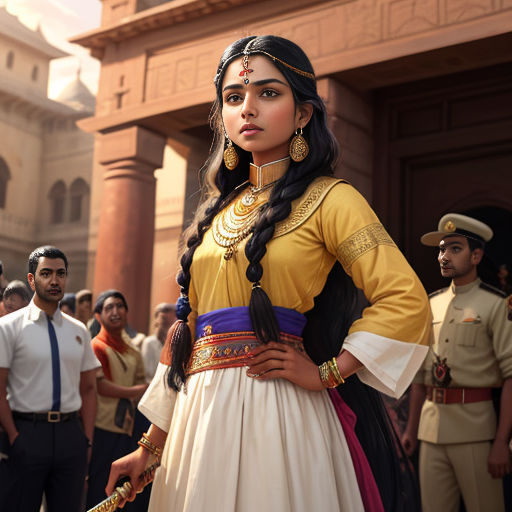
Books have been written, poems have been composed, and films have been made, all narrating the valiant tale of this courageous queen.
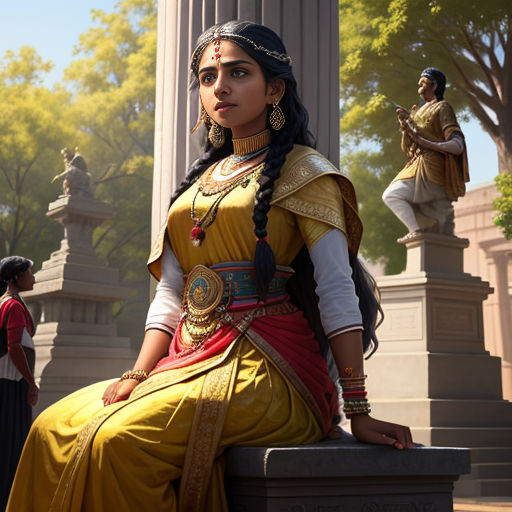
Schools teach her story, instilling a sense of courage and patriotism in the young minds. Statues of her stand tall, a constant reminder of her sacrifice and bravery.

Her legacy transcends time and continues to inspire generations. A tale of a woman, a warrior, a leader, who sacrificed herself for her people and her country.

Rani Lakshmi Bai's life was a shining beacon of hope amidst the darkness of the colonial era, illuminating the path to freedom and inspiring countless hearts with her indomitable spirit.
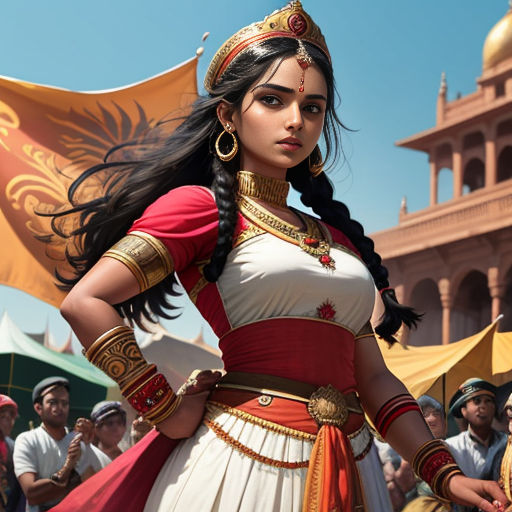
From a warrior queen to a national icon, her journey is talked about with great pride. Her tale is a testament to the strength of the human spirit and its capacity to fight against all odds.
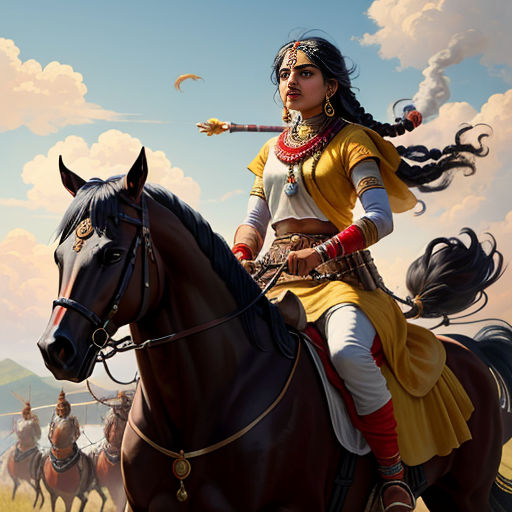
Her words, "I shall not surrender my Jhansi," still echo in the hearts of millions, a symbol of her indomitable spirit and unyielding resolve.
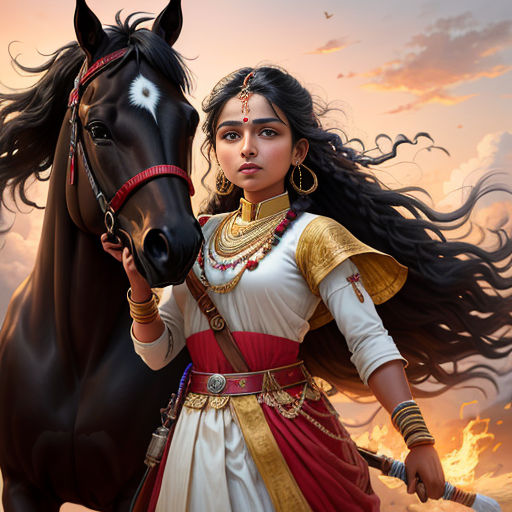
Rani Lakshmi Bai's courageous tale continues to be narrated, her sacrifices remembered, and her spirit celebrated. Her legacy lives on, inspiring lives and lighting the torch of freedom.
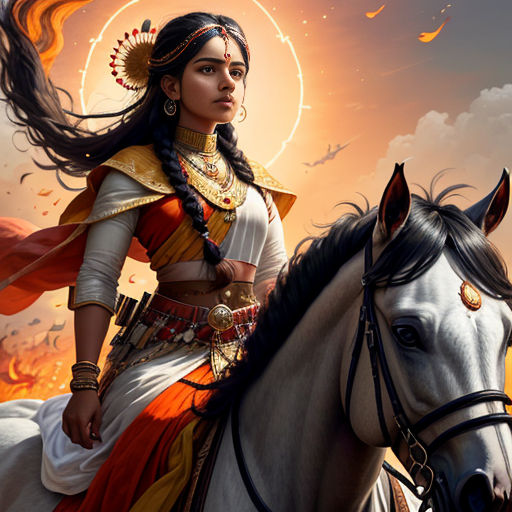
The brave queen of Jhansi remains in the hearts of people as a symbol of courage and resilience, inspiring generations to keep fighting for what they believe, just as she did.
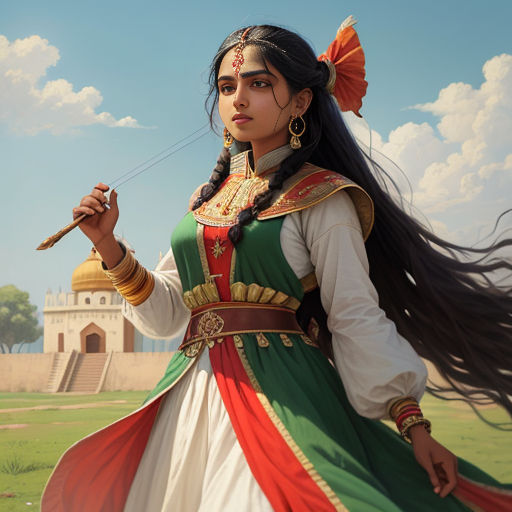
The inspiring tale of Rani Lakshmi Bai, the warrior queen of Jhansi, continues to resonate through the annals of history, reminding everyone about the power of courage, resilience, and love for one's motherland.
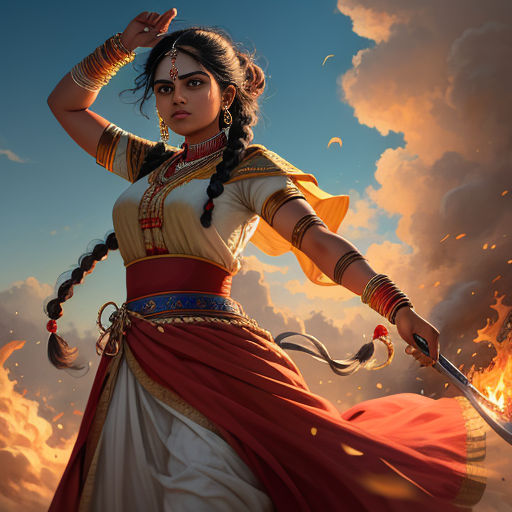
Her spirit resonates with every individual who dares to dream, to rebel against injustice, and to fight for their rights. The tale of Rani Lakshmi Bai is not just a tale of bravery, but a tale of inspiration for all.

She continues to inspire millions, teaching them that courage, resilience, and the conviction to protect one's own are the true virtues of a leader. A leader, who lived, fought, and died for her people.

The queen of Jhansi, Rani Lakshmi Bai, once fought the British single-handedly with her sword. Today, she fights despair and hopelessness with her inspiring story, carving a niche in the hearts of millions.

Through her life's tale, Rani Lakshmi Bai continues to rule the hearts of the people, inspiring them to fight against all odds, just as she did.
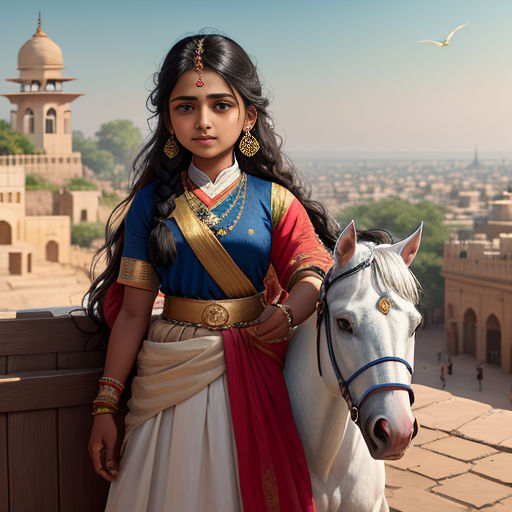
The inspiring life of Rani Lakshmi Bai - the Warrior Queen of Jhansi, resonates through centuries, her indomitable spirit and valour serving as a beacon of courage, resilience, and undying love for her motherland.